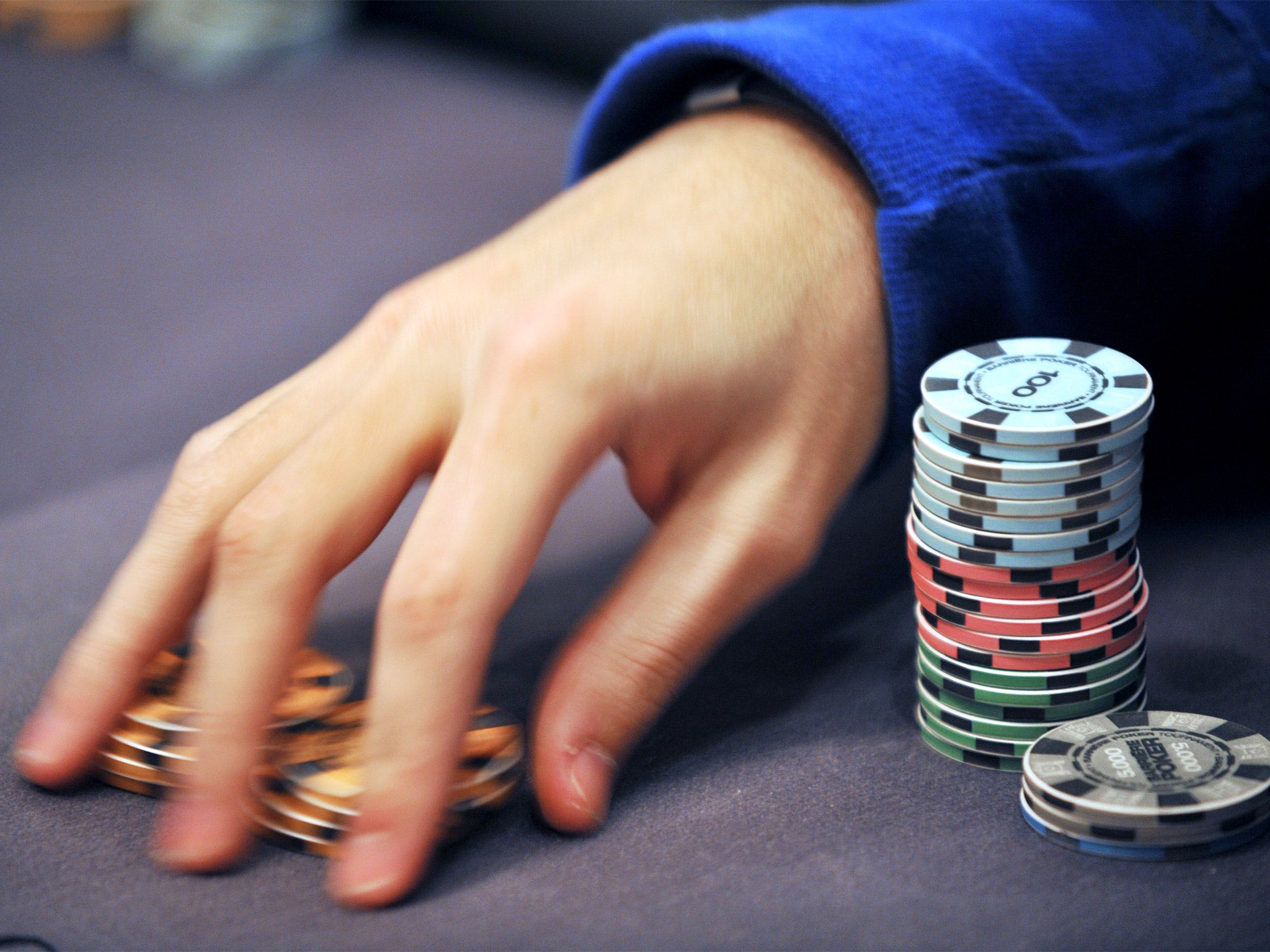New computer program Cepheus is said to be unbeatable at poker
Cepheus mastered poker by playing against itself for just two months. Nic Szeremeta tries to call its bluff

I have tangled with a lot of fierce players during my five decades of exploring the green felt jungle that is the poker world. But a couple of days ago I found myself alone at the table with the most aggressive card player I have ever faced. In a game where my worst possible loss should have been about 160 chips, I dropped 670.
My nemesis was not a human card shark, but a computer program. He is called Cepheus, henceforth to be known as "Ceph the Unbeatable", developed by the Computer Research Poker Group at the University of Alberta in Canada.
While researchers have previously developed "unbeatable" algorithms for games such as chess or draughts, this is the first time that scientists have "solved" a game in which some information (i.e. the cards in the opponent's hand) remains hidden from the player.
The form of poker Cepheus plays is heads-up limit Texas hold'em, which means it's one-against-one, as featured in Michael Craig's book The Professor, the Banker and the Suicide King. Hold'em aficionados such as Doyle Brunson, a former world champion, preach the need to "change gear", to take one's foot off the aggression pedal occasionally. But not Ceph. Most of the time, around 75 to 80 per cent of hands, he would enter the pot with a raise or re-raise. It was as if he was saying: "If you want to take me on it is gong to cost you." Which, of course, it did. So where did a computer algorithm get this aggression? Surprisingly, he taught himself.
When Cepheus was being developed, scientists at Alberta University told him the rules, explained the concept of "winning" and left him to work it out. Armed with 4,000 central processing units he played heads-up hold'em poker against himself for two months. Gaining experience at lightning speed he played billions more hands than the entire poker playing population of planet earth has ever played. No wonder I had little chance of winning.
"At the start, Cepheus had no idea what he was doing other than following the rules of the game," says Michael Johanson, a member of the research team. "But as time went on he began to update the information in its databanks and, instead of making random plays, Cepheus began to incorporate poker strategy into its processes."
Will the fact that a computer has "solved" hold'em cause any ripples on the poker pond? The obvious answer is no, because the form of poker it has cracked – heads-up fixed limit – is very rarely played. It's a well-known feature of game theory that in all but very specific cases, games with three or more players are unsolvable, as any strategy can be defeated by some combination of strategies by the other players. This is why most artificial intelligence poker research focuses on heads-up play, and makes it unlikely that computer research will ruin other formats for anyone in the near future.
But Cepheus will go down as a milestone in game-playing computers, up there with Deep Blue, the computer program that defeated chess champion Garry Kasparov in 1997. In reality, though, Ceph has achieved more because chess is a game of "perfect information" (everything is known) while in poker there are many unknown factors at work.
The system that enabled Cepheus to solve poker also has applications in other fields, such as medicine and security. A research group at the University of Southern California is using a similar technique to develop a system for deploying air marshals on flights and coastguard patrols at ports. In the same way that Cepheus found a way of not being beaten at poker, the USC project is aimed at devising policies that cannot be exploited by any adversaries. Which means that exploits of a poker-playing robot could one day be contributing to the fight against terrorism. Which at least makes me feel a little less sore about my defeat.
Join our commenting forum
Join thought-provoking conversations, follow other Independent readers and see their replies
Comments
Bookmark popover
Removed from bookmarks